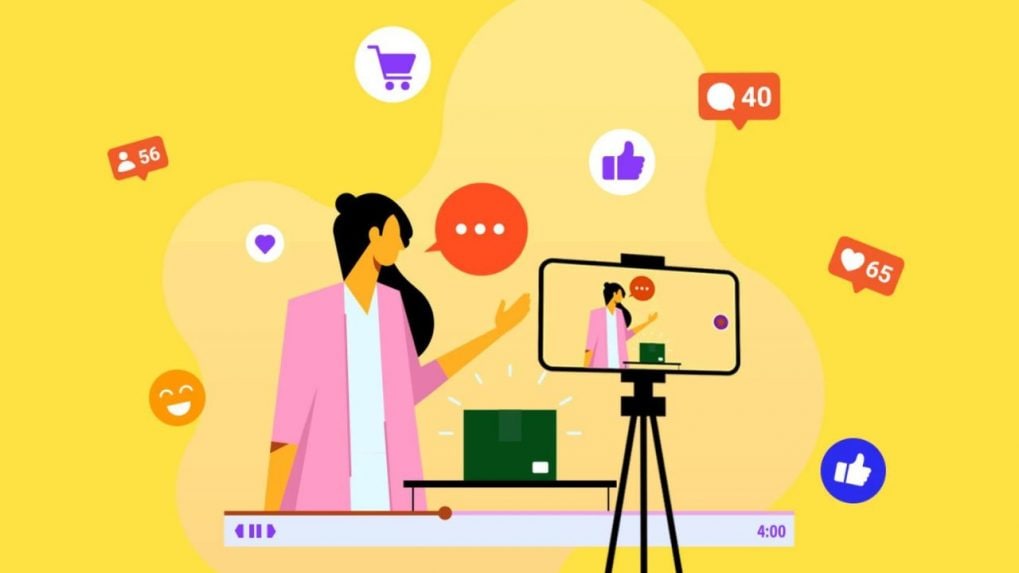Digital
Why OpenAI is hiring 100 ex-bankers: Inside the ChatGPT-maker's secret project to automate Wall Street's grunt work

In what could be one of the most pivotal shifts in the digital content ecosystem in recent years, Meta has announced a sweeping crackdown on unoriginal content across its platforms. Accounts that repeatedly repost others' videos, or exist primarily to curate viral clips without transformation, now risk reduced visibility, demonetization, and limited distribution.
The move mirrors YouTube’s similar update aimed at curbing duplicate video uploads and protecting the original creator economy.
The message from both tech giants is loud and clear: originality matters again.
“This isn’t a crackdown on remix culture—it’s a rebalancing of equity and effort in favor of those pushing culture forward,” said Mayank Gandotra, Director - Content and Growth Strategy at VerSe Colab. “Meta’s policies reaffirm that creators who invest time, creativity, and perspective deserve visibility, not copycats.”
From Meme Pages to Content Farms— Who’s Hit the Hardest?
Meme aggregators, compilation channels, reaction pages, and AI-driven content farms that thrived on volume over value are expected to bear the brunt.
“Those who’ve built followings by reposting without consent or context will see a sharp drop in both reach and revenue,” said Neelesh Pednekar, Co-Founder of Social Pill. “Meanwhile, original creators—whether vloggers, explainer artists, or documentarians—will be rewarded with better distribution and higher RPMs.”
Digital creator Anisha Dixit echoed this sentiment. “For creators like me whose videos are often reposted without permission, this is a huge step forward. But I do hope platforms find a balance—satire, commentary, and reaction formats deserve space under fair use.”
She pointed to a recent incident where even a few seconds of news footage led to YouTube strikes. “If reused content always equals a penalty, we’ll lose the space for critique and creativity. The platforms must evolve smarter filters, not blanket bans.”
Anushka Sanghvi, CMO of Nofiltr Group, sees deeper creative opportunities too. “We’ll now push for content IPs, story-led brand formats, and creators with a clear voice—not just trendy edits. Platforms rewarding originality make the whole ecosystem healthier.”
Brands Back Originality, Say It’s Time
For marketers, the shift toward originality couldn’t come sooner. Advertisers are already taking note of the shift in creator evaluation metrics.
Shankar Prasad, CEO of Plum, welcomed the move as one that restores trust and transparency. “From a brand’s POV, this makes partnerships more transparent,” he said. “We get to see who’s building real communities and crafting their own voice. That clarity helps us choose collaborators whose values align with ours.”
Manish Chowdhary, Co-Founder of WOW Skin Science, agrees. “We believe this is a maturity signal. It helps us prioritize creators who bring genuine innovation and storytelling, over those who chase virality through mimicry.”
Read more: After YouTube, Meta crackdowns on 'unoriginal content'; removes 10 million fake Facebook profiles
As Irina Bonich, Marketing Director of Oriflame, puts it, “We’re entering an age where creativity—not just clicks—earns the spotlight. This is not just platform hygiene; it’s a creative renaissance.”
Across the board, brand leaders agree that the crackdown levels the playing field for creators and allows advertisers to make more informed, intentional choices.
“This policy update discourages viral vultures and elevates those telling personal, purposeful stories. For us, it’s a chance to build skincare series or transformation narratives that actually resonate.”
Bonich emphasizes that with less competition from low-quality, recycled posts, branded content is also more likely to stand out and connect. “Reduced clutter means better ROI. Meta isn’t just protecting creators—they’re restoring signal in a sea of noise.”
Industry observers believe this marks the end of the cross-post-everywhere strategy.
Overall, experts believes this policy shift will not only affect content planning but also campaign strategy.
“For agencies and brands, this changes how we brief creators,” says Himanshu Singla, CEO of Idiotic Media. “We’re now looking for storytellers, not schedulers. If you’re just reposting trends, your value to a brand shrinks.”
The Facebook Factor
While Instagram and YouTube dominate Gen Z attention, Facebook is quietly re-entering the creator conversation. “Outside metros, Facebook is still deeply relevant,” highlihts Gandotra. “With Reels and an AI-curated feed, it offers scale and cultural depth for creators who can speak authentically.”
Aryan Anurag, co-founder of Binge Labs agrees that Facebook’s relevance varies. “It’s still a first platform for Tier 3 and regional creators. These policy changes may encourage them to build with more originality instead of just cross-posting.”
“Now that Meta is signaling serious investment in original Facebook content—like Reels, Groups, and Watch—we’ll likely see a shift in content made for Facebook, not just cross-posted to Facebook, say experts.
Singla believes this marks the end of the cross-post-everywhere strategy. “If Facebook truly begins rewarding native and original content, it’ll no longer be just a dumping ground for recycled Reels. It’ll need platform-first thinking again.”
Advertisers, too, are watching this space with fresh eyes.
“Facebook’s pivot to originality gives us another high-scale platform to work with,” said Sanghvi. “If creators start taking Facebook seriously again, we could build long-term formats, behind-the-scenes content, or even fan community IPs that go beyond trends.”
From purpose-driven work and narrative-rich brand films to AI-enabled ideas and creator-led collaborations, the awards reflect the full spectrum of modern creativity.
Read MoreIn a wide-ranging interview with Storyboard18, Sorrell delivers his frankest assessment yet of how the deal will redefine creativity, media, and talent across markets.